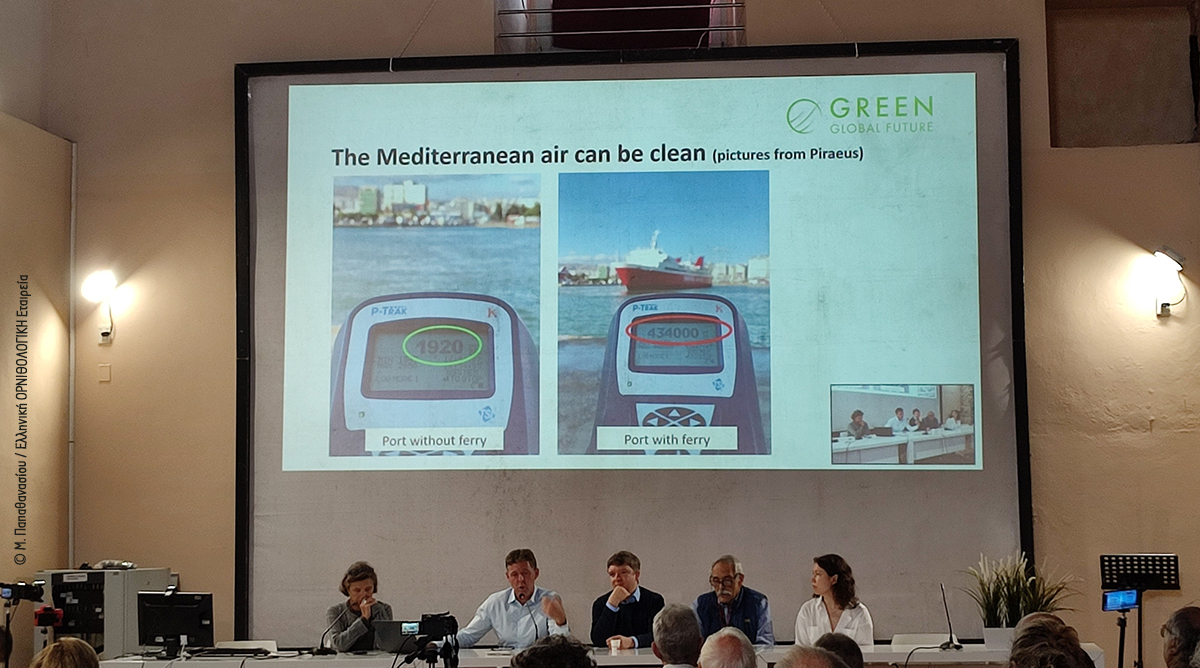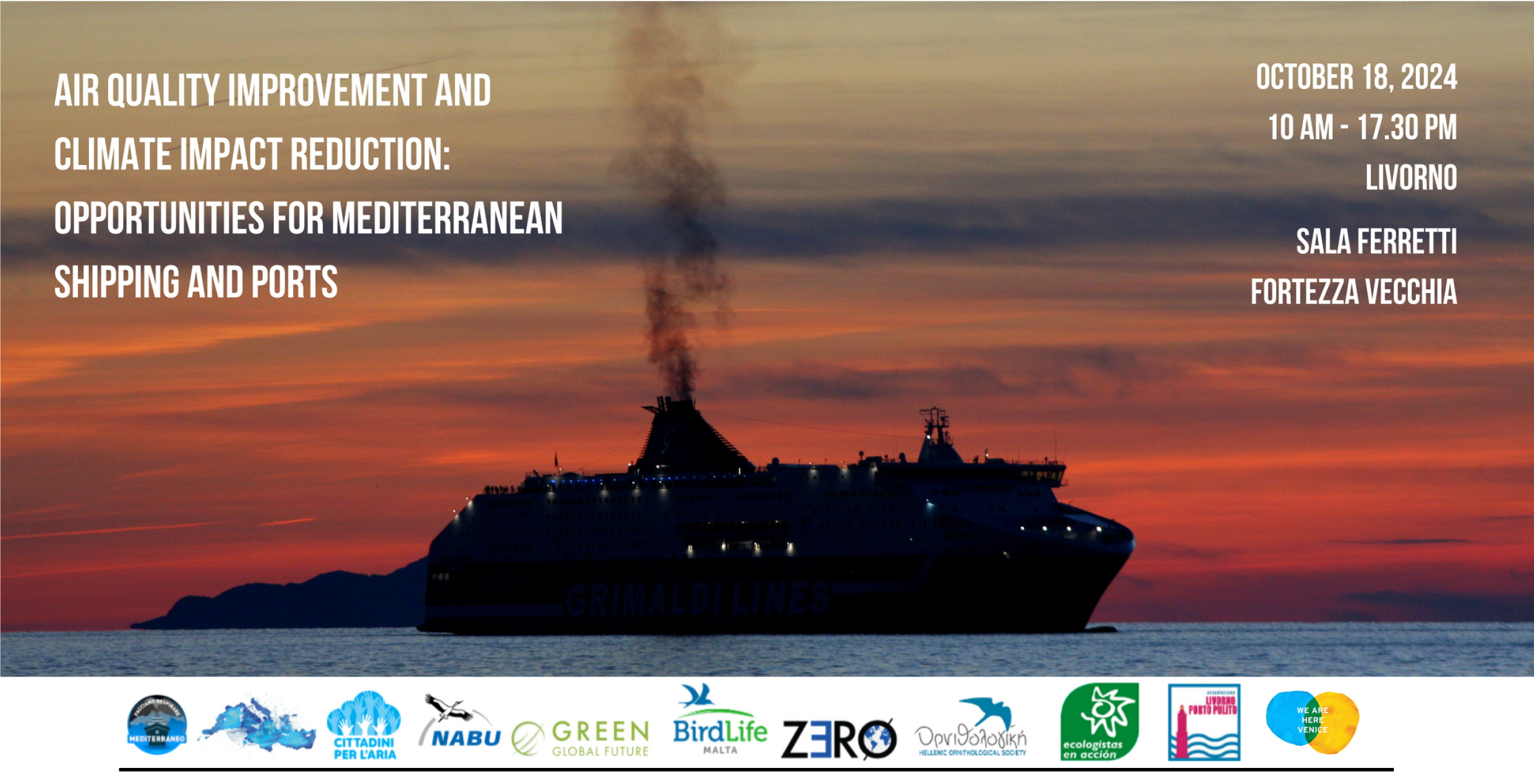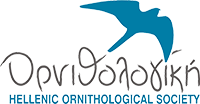An alliance of European organizations is urging the Mediterranean to be declared as Nitrogen Emission Control Area (NECA)
On Friday, October 18th, in Livorno, Italy, an International Conference was held on improving air quality and reducing the impact of maritime pollutants on the environment and human health in the Mediterranean. The event brought together dozens of experts, scientists, and supporters of the effort for cleaner air in the Mediterranean.
During the Conference, the opportunities and benefits of a series of measures were presented and discussed, which could contribute to reducing the environmental footprint of shipping in the Mediterranean, one of the most important hubs for global shipping lines and one of the most heavily polluted areas in the world due to maritime emissions.
The Hellenic ORNITHOLOGICAL Society was also present at the event, as a member of the MedECA network, an alliance of environmental organizations from Spain, France, Italy, Malta, Portugal, and Greece. Established in 2016, the network has since worked to reduce shipping emissions in the Mediterranean region, under the coordination of the German Nature and Biodiversity Conservation Union (NABU).

Sönke Diesener, shipping expert at NABU said: “The Mediterranean Sea will become an emission control area for Sulphur in 2025. This will substantially improve the quality of air that millions of people breathe every day. States should remain on their chosen path and take the consequent step by also establishing a NECA (Nitrogen Emission Control Area). The health benefits for residents all around the Mediterranean are evident as respiratory diseases as well as premature deaths can be avoided simply by limiting the accepted number of pollutants being emitted by ships. The benefits by far outweigh the costs that are put on the shipping companies to cleaning up their exhausts”.
Given that air pollution from ships not only affects the port area but spreads throughout the entire city, measurements like those recently conducted by the MedECA Network should have already raised alarm in many Mediterranean countries, including Greece.Maria Papathanasiou, representative of the Hellenic Ornithological Society in the MedECA Network, said: "We call on the Greek government to uphold its commitments and actively support the request for a Mediterranean NECA at the International Maritime Organization (IMO). The use of dirty fuels and the lack of appropriate technology to treat them endanger human health and the environment. Reducing shipping emissions means healthier marine and terrestrial ecosystems and better health for residents, especially those living in large port cities like Piraeus."




